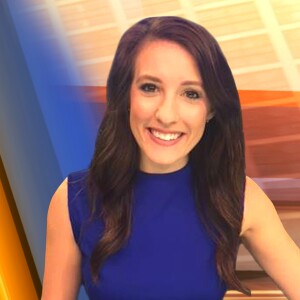CLEVELAND — The COVID-19 pandemic has impacted everyone in some form or another. For adults who identify as LGBT, the hit could've been a bit stronger - especially early on when businesses were shut down.
"A lot of those avenues for income were not no longer available, so then that has like this huge ripple effect around housing, around food security, around access to health care," said Gulnar Feerasta with the LGBT Community Center of Cleveland.
Feerasta, the program director for the center, said staff at their center reported an uptick in requests for mental health services from clients and guests who utilize their center. She said those requests haven't subsided but rather remained constant since the start of the pandemic.
Though the issues for LGBT adults are present nationwide. According to a recent study from the Prior Williams Institute, LGBT people of color are twice as likely as white non-LGBT people to test positive for COVID-19. The study of 12,000 respondents also said LGBT people of color reported disproportionately being laid off or furloughed and struggling to pay for basic needs.
Feerasta said for many LGBT adults, because of disparity and lack of equity many in this community did not have the appropriate access to health care nor a relationship with a healthcare provider.
"Even if they got COVID, they were scared to go to the emergency room or they didn't have insurance to go see, you know, to get on a telehealth appointment," she said. "It really hit home after the pandemic happened just how much... the role the staff plays, the team plays, in terms of providing that sense of care and comfort to the community."
Now as the vaccine rollout continues, Feerasta said they're partnering with other agencies in Northeast Ohio to help connect people with vaccine appointments. But encouraging some adults in this community isn't easy, Feerasta said, partly because of a fundamental mistrust of the healthcare system.
"Any time that you have been connected to a system, there are endless barriers and challenges and hoops that you have to jump through because the systems are just not created to provide equitable access, but also to serve the unique needs of our community," she said.
But, she added, there could be multiple reasons someone is hesitant to get the shot.
"It's hard to say it's like one thing because it's it's an entire lived experience of not just an individual, but an entire community," she said.
Tom Stebel is a long-time volunteer at Cleveland's LGBT center. He's received both doses of the COVID-19 vaccine. Stebel said he's now working with staff to help inform guests and clients of the center about the vaccine and its impact.
"A lot of it is disinformation and misinformation that I hear back from clients and guests at the center," he said.
Stebel said he's not sure he's changed any minds about the vaccine just yet but still believes the conversations are important.
"I feel like having had a conversation with me or any of the staff at the center, people seem more reassured," Stebel said.
The LGBT Community Center isn't fully open just yet, but guests and clients can utilize the cyber center to access the internet. If you need help scheduling a vaccine appointment, the center can provide assistance. Call 216-651-5428 or email getvaccinated@lgbtcleveland.org.
"We're ready to take more calls and have folks come in and get registered for the vaccine," Feerasta said.





